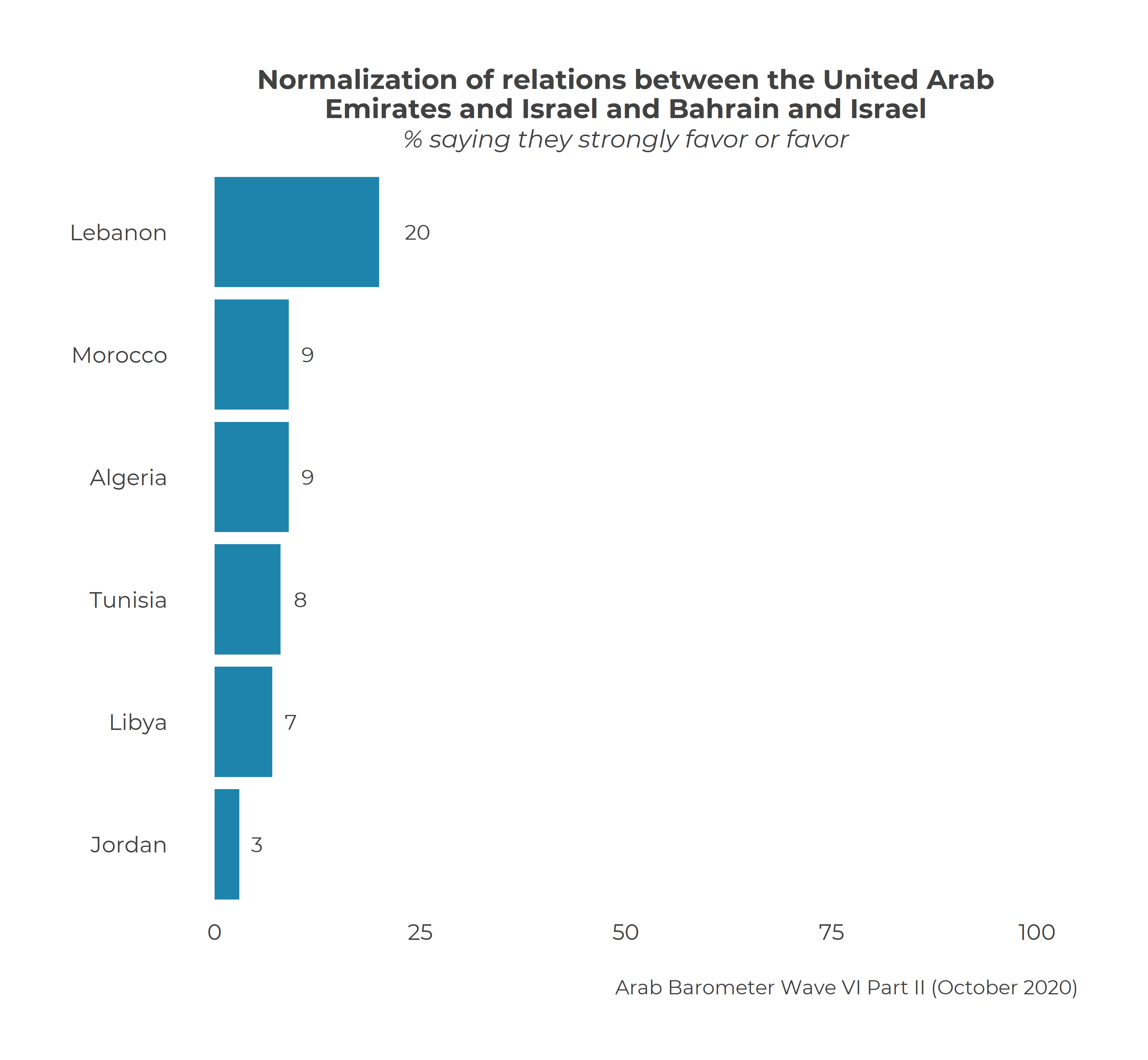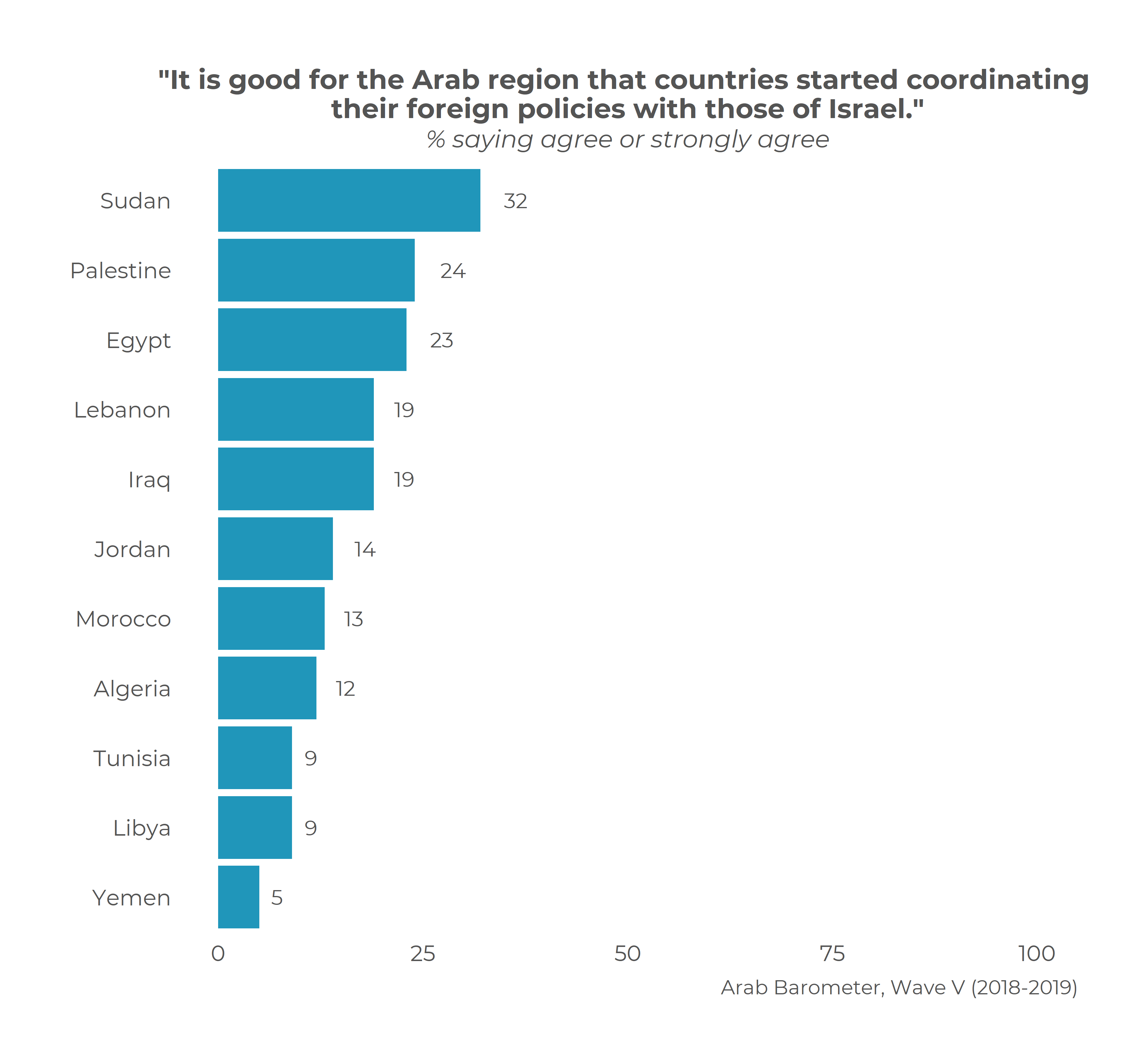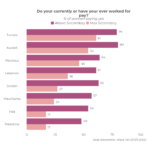On December 10, Morocco became the most recent country to initiate the normalization of relations with the State of Israel, following examples of the UAE, Bahrain, and Sudan earlier in 2020. These peace treaties have broken a long-standing impasse with Israel across the region and will change the direction of international relations within MENA.
While governments are actively engaging Israel, ordinary citizens have very low levels of support for these treaties. In October 2020, Arab Barometer conducted nationally representative phone surveys across six Arab countries – Algeria, Jordan, Lebanon, Libya, Morocco, and Tunisia – to gauge attitudes about these agreements, commonly known as the Abraham Accords. Overall, support is extremely low across the region. In five of the six countries surveyed, fewer than one-in-ten citizens favor or strongly favor the respective peace treaties that Israel signed with the UAE and Bahrain, including just nine percent in Morocco and Algeria, eight percent in Tunisia, seven percent in Libya, and three percent in Jordan.
Lebanon is the main exception to this regional trend. Although support remains low overall at 20 percent, it is significantly higher than elsewhere in the region. In Lebanon, there is significant variation in attitudes toward the Abraham Accords by sect; half of Christians favor the accords compared with only 11 percent of Druze, six percent of Sunnis, and less than one percent of Shias.
Given the low support overall, there is little variation in most country by demographic characteristics. However, there are some notable difference by age. In Lebanon, those who are 30 years and older are substantially more likely to favor the accords than those who are ages 18-29 (26 percent vs. 7 percent). This difference is likely linked to frustration by those who are older about the frozen nature of the conflict with Israel and the associated international costs, particularly at a time when Lebanon is going through a major economic and financial crisis.
Elsewhere, there is limited evidence that youth may be more open toward peace with Israel. In Algeria, those ages 18-29 are eight points more likely to favor the Abraham Accords than those who are 30 and older. In Tunisia, the difference is five points.
Results from the Arab Barometer 2018-9 survey conducted face-to-face in 12 countries makes clear that there is low support for closer ties with Israel. When asked whether it is beneficial for the Arab region that some countries have started coordinating their foreign policies with Israel, a third or fewer say it is in all countries. Support is highest in Sudan at 32 percent, but significantly lower elsewhere, including Egypt (23 percent), Lebanon (19 percent), Jordan, (14 percent), Morocco (13 percent), Algeria (12 percent), and Tunisia (9 percent).
Overall, these results suggest that Arab publics are not in line with the actions of some of their governments. The new accord between Morocco and Israel is likely to be viewed similarly. Arab publics remain strongly supportive of the Palestinian cause, meaning that without a viable solution to the Israeli-Palestinian conflict, the vast majority are unlikely to support their countries making peace with Israel.





